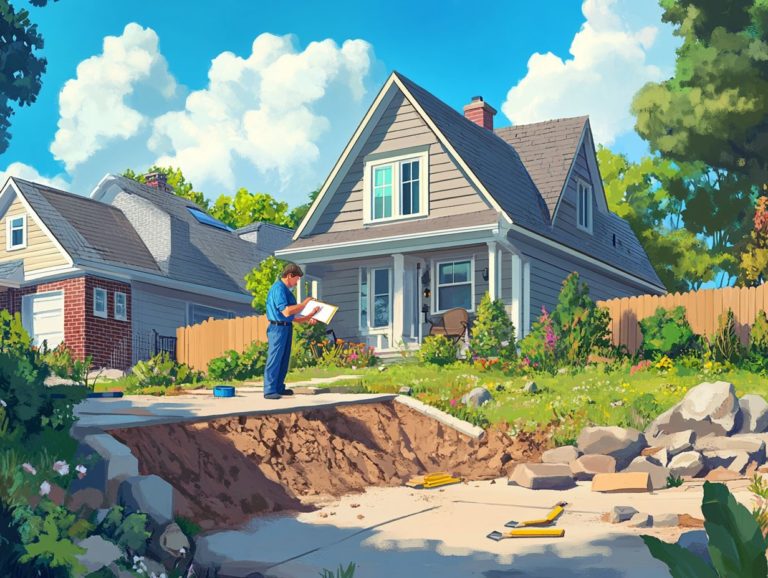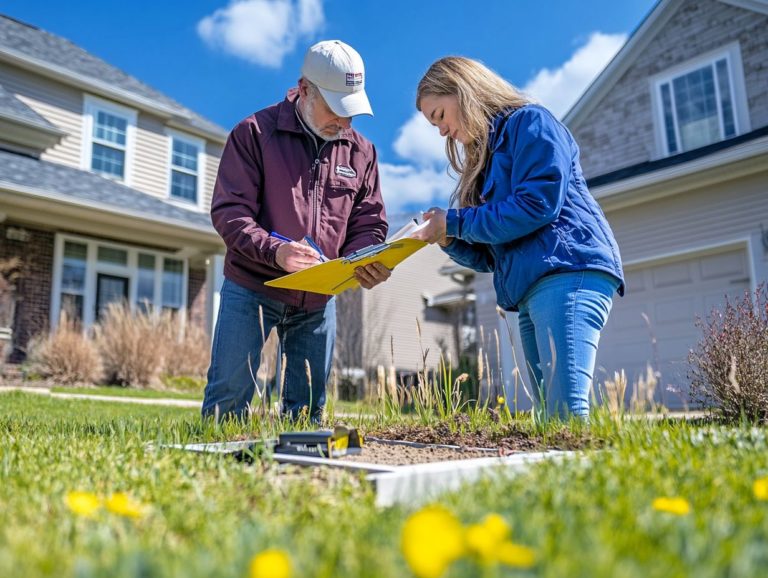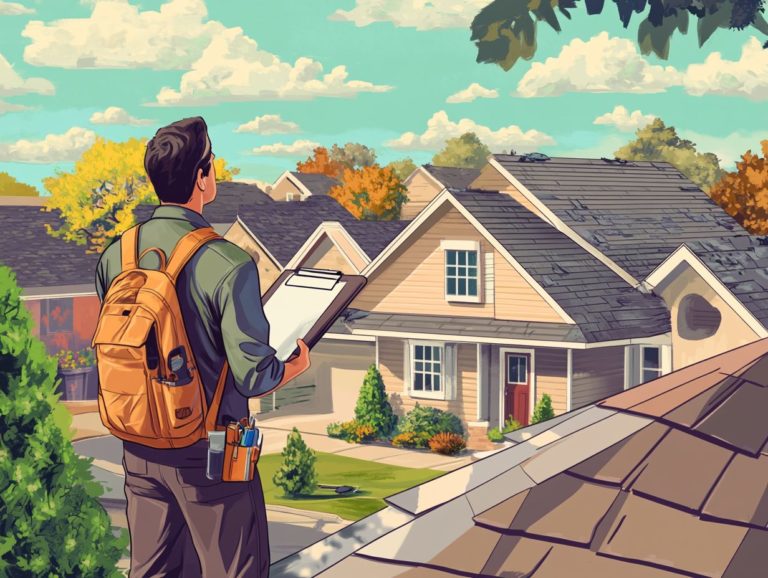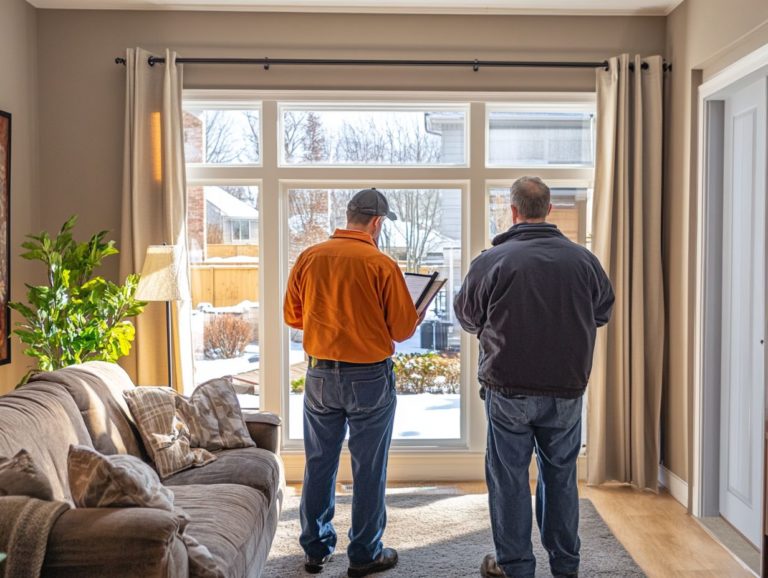The Importance of Home Inspections Before Closing
Buying or selling a home is a significant milestone, and understanding the details of home inspections is essential for making informed decisions.
This article covers the fundamentals of home inspections, highlighting what inspectors focus on and the advantages for both buyers and sellers. You’ll find valuable tips on how to prepare your home, what to expect during the inspection process, and how to interpret the findings effectively.
Whether you’re actively searching for a new home or getting ready to sell, this overview will equip you with the knowledge you need to navigate your next steps with confidence. Understanding these inspections now can save you from costly surprises later.
Contents
- Key Takeaways:
- Understanding Home Inspections
- Why Home Inspections are Important
- What Home Inspectors Look For
- Preparing for a Home Inspection
- What to Expect During the Inspection
- Interpreting the Inspection Report
- Negotiating After the Inspection
- Finalizing the Home Purchase
- Frequently Asked Questions
- What is the importance of home inspections before closing?
- What types of issues can home inspections reveal?
- Who is responsible for scheduling a home inspection?
- When should a home inspection be scheduled?
- Are there any types of properties that do not require a home inspection?
- Can a home inspection affect the final sale price?
Key Takeaways:
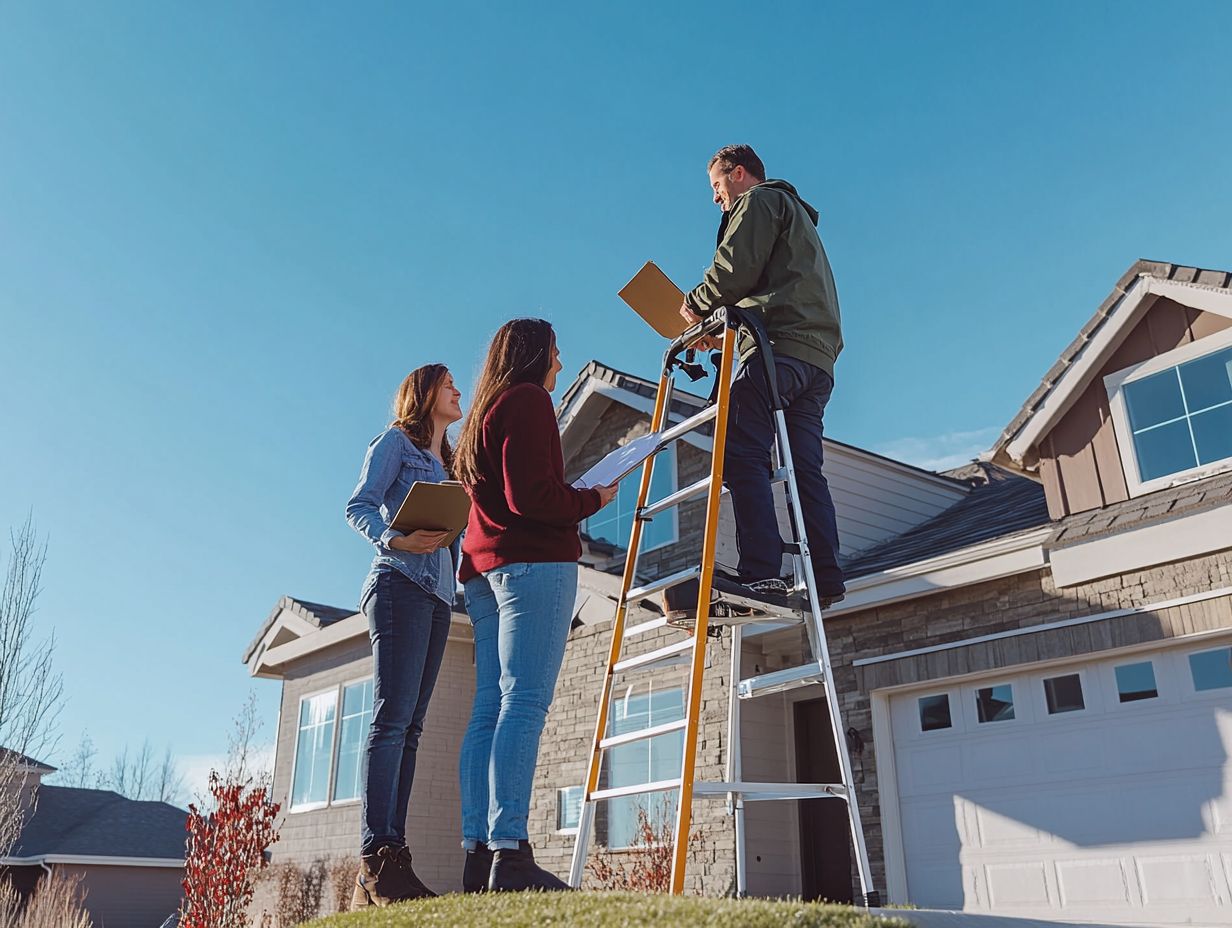
A home inspection is a crucial step in the home buying process, providing buyers and sellers with valuable information about the condition of the property. Understanding the importance of a thorough home inspection can benefit buyers by uncovering potential issues and giving them negotiating power, and sellers by allowing them to address any issues before listing. Before the home inspection, sellers should prepare their home by addressing any obvious issues and making sure the inspector has access to all areas of the property.
Understanding Home Inspections
Understanding the details of home inspections is vital in your home buying journey, particularly if you’re a first-time buyer. Knowing the importance of home inspections in real estate can help you make informed decisions.
A home inspection involves a professional checking important parts of the house, ranging from the strength and stability of the building to electrical systems. This detailed check ensures that potential issues like plumbing failures, safety hazards, and fire risks are brought to light.
Armed with this knowledge, you’ll be empowered to make informed choices, negotiate necessary repairs effectively, and fully understand your rights as a buyer during the inspection process.
What is a Home Inspection?
A home inspection is a thorough evaluation of a property’s condition, carried out by a licensed company. This process typically includes a detailed inspection report that highlights any defects within the home.
For prospective buyers, this evaluation is essential, as it empowers you to make informed decisions about your potential purchase. Licensed inspectors meticulously examine various aspects of the home, covering systems such as plumbing, electrical, heating, and cooling, as well as structural components like the roof, foundation, and walls.
The inspection report you receive is an invaluable resource, offering insights into the property’s condition, pinpointing potential issues, and estimating repair costs. By identifying home defects early on, you can negotiate necessary repairs or even reconsider your investment altogether, promoting transparency and peace of mind throughout the real estate transaction.
Why Home Inspections are Important
Home inspections play a vital role in the real estate process, highlighting the importance of thorough home inspections that deliver substantial advantages for both buyers and sellers.
They provide you with the opportunity to uncover issues within a property, serving as an important bargaining tool. You can tackle repair costs or safety issues before finalizing the sale, ensuring a smoother and more informed transaction.
Benefits for Buyers and Sellers
The advantages of a home inspection cater to both buyers and sellers, fostering transparency throughout the entire transaction.
As a buyer, grasping the condition of a property is crucial; it empowers you to make well-informed decisions about your investment and safeguards your rights during negotiations. By pinpointing potential repairs or safety concerns, the inspection report becomes a formidable bargaining chip, allowing you to request necessary repairs or price adjustments before sealing the deal.
On the other hand, sellers can also reap significant benefits from a thorough inspection. By gaining insights into their property’s strengths and weaknesses, they can effectively highlight its best features while proactively addressing any concerns, thereby building trust and enhancing marketability.
A comprehensive home inspection serves as an essential tool that bridges the gap between buyers and sellers, highlighting the importance of home inspections for new homeowners and ensuring a smoother transaction for everyone involved.
What Home Inspectors Look For
During a home inspection, you’ll see a professional home inspector diligently examining numerous aspects of the property.
Their focus will be on common inspection areas that could unveil safety hazards or potential issues, ensuring that you are well-informed about the condition of your future home.
Common Areas of Inspection

When you undergo a home inspection, focus on critical areas like electrical systems, plumbing, and specialized checks such as mold and termite inspections. These evaluations are essential for ensuring the safety and functionality of your home.
Electrical issues can create hazardous situations, including fires and unexpected outages. Therefore, it’s crucial to check wires and plugs thoroughly.
Plumbing problems can lead to leaks or water damage. Tackle these issues quickly to avoid significant costs.
A comprehensive mold inspection is crucial, as mold can severely impact indoor air quality and pose health risks.
Similarly, a termite inspection is vital since these pests can inflict extensive structural damage, threatening your home’s integrity. By addressing these areas, you not only protect the property’s value but also safeguard everyone s well-being.
Preparing for a Home Inspection
Preparing for a home inspection is essential, especially for first-time home buyers.
Follow these key tips to ensure your home is ready for a smooth inspection process.
Tips for Preparing Your Home
To effectively prepare for a home inspection, proactively tackle both major and minor issues, as these can significantly impact repair costs.
Fixing leaky faucets conserves water and alleviates plumbing concerns that could arise during the inspection.
Cleaning your gutters is essential to prevent water damage; ensure that your drainage systems function properly to keep red flags at bay.
Verify that all appliances are in good working order. This shows inspectors that your home is well-maintained. These proactive measures enhance your property s appeal and pave the way for a smoother inspection process, leading to more favorable negotiations.
What to Expect During the Inspection
During the inspection process, expect a professional home inspector to carry out a thorough check of the property.
They will detail various aspects of the home, ensuring you have a comprehensive understanding of its condition.
The Inspection Process
The inspection process digs deep to protect your investment. It leads to a detailed report that highlights any potential hazards and safety findings. This evaluation unfolds in several stages, starting with a visual assessment of both the exterior and interior of the home.
Next, inspectors will carefully check the structural integrity and essential systems like plumbing, electrical, and HVAC (heating, ventilation, and air conditioning). Inspectors actively record everything they find, often using digital tools for clarity. Every finding, no matter how small, is noted and explained in the report, ensuring you fully grasp the property’s condition.
This report is your game-changer. It empowers you to negotiate repairs confidently and protect your investment.
Interpreting the Inspection Report
Interpreting the inspection report may seem overwhelming, but understanding the findings is essential for negotiating repair costs.
Grasping these details gives you the power to approach discussions with confidence and clarity.
Understanding the Findings

Understanding the findings in the inspection report is vital for identifying safety hazards and protecting your rights during negotiations.
This process includes pinpointing issues like structural problems, electrical wiring issues, and plumbing deficiencies, all of which can have serious safety implications.
For example, outdated electrical systems may pose fire hazards, while plumbing leaks could lead to mold growth, jeopardizing the health of future occupants.
Remain vigilant in recognizing these potential safety concerns, as they can significantly impact repair costs and overall property value.
Acknowledging such issues helps you make informed decisions and enhances your leverage in negotiations, ensuring that your investment remains sound and secure.
Don’t let hidden issues derail your dream home. Be proactive today!
Negotiating After the Inspection
Negotiating after the inspection is an important time in the home buying journey. This is where you can leverage the inspection findings to negotiate necessary repairs and address any home defects.
Addressing Any Issues
Addressing any issues uncovered during the home inspection is essential. Whether they are major concerns or minor details, they can significantly influence repair costs and your negotiation strategy.
You should be proactive when discussing inspection findings. Request specific repairs or adjustments to the sale price.
For example, if the inspection reveals serious plumbing leaks or faulty electrical systems, it’s wise to insist on the necessary repairs, as highlighted in the importance of pre-purchase home inspections, before closing.
Even seemingly minor issues, like cosmetic flaws or outdated fixtures, can serve as valuable bargaining chips in negotiations.
By presenting a documented list of discrepancies along with their estimated repair costs, you position yourself to negotiate effectively. This enhances your investment and paves the way for a smoother transition into your new home.
Finalizing the Home Purchase
Finalizing your home purchase involves navigating steps after the inspection. You must carefully go through the closing process while ensuring all property conditions are met and your rights as a buyer are upheld.
Next Steps After the Inspection
Your next steps after the home inspection include reviewing the findings and using them as negotiation tools to tackle any home defects and potential repair costs before moving toward closing. This is an important time for you as a buyer.
Create a detailed list of the issues uncovered during the inspection. It’s wise to communicate these findings effectively with your real estate agent, who can offer expert advice on how to approach negotiations with the seller.
Prepare a strategic proposal that outlines your requests for repairs or financial concessions. Make sure to emphasize the most critical issues. Once you have this proposal polished, finalize any agreements swiftly, allowing both you and the seller to move forward seamlessly toward a satisfactory closing.
Frequently Asked Questions
What is the importance of home inspections before closing?
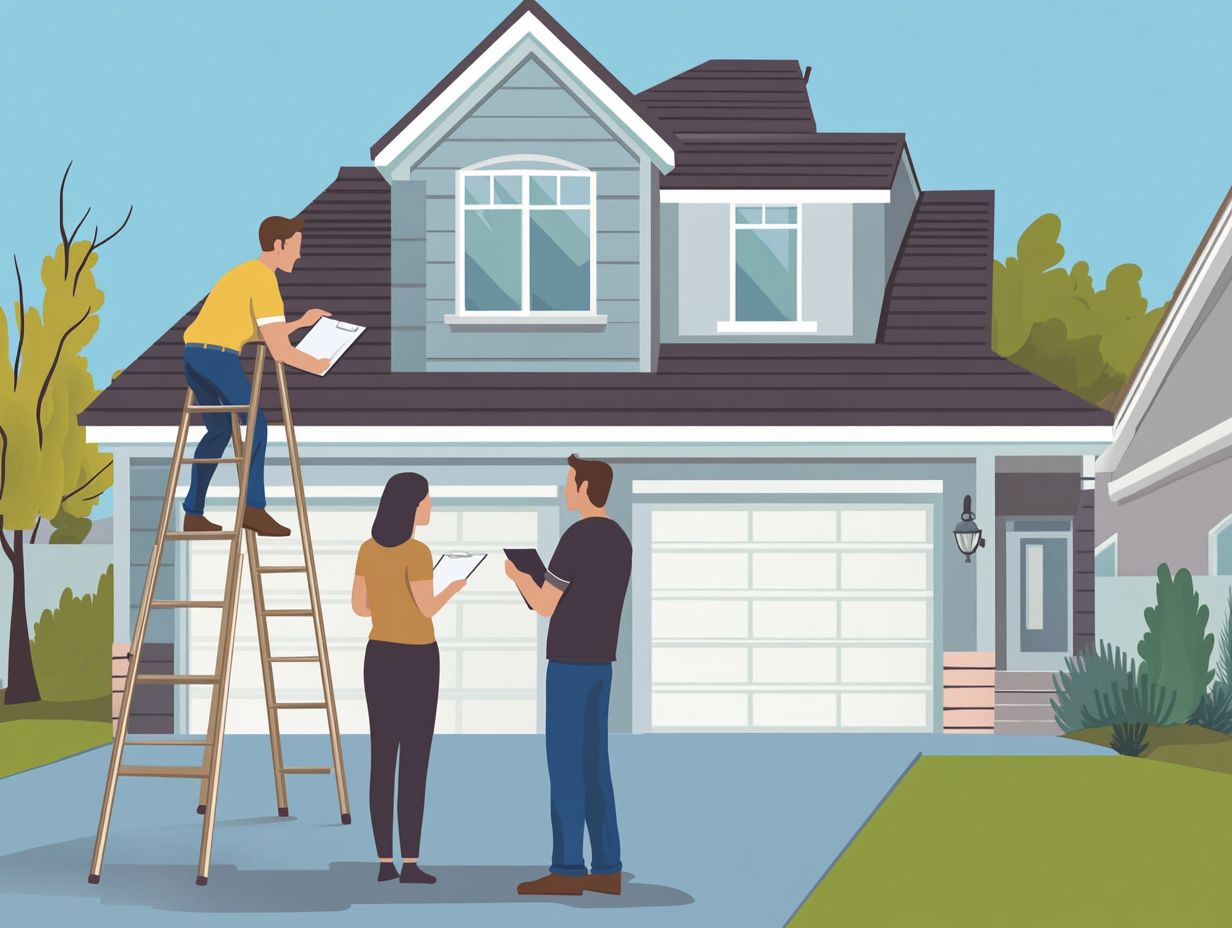
Home inspections before closing are crucial because they uncover potential issues with the property. Understanding the importance of home inspections before closing allows you to make an informed decision before finalizing the purchase.
What types of issues can home inspections reveal?
Home inspections can reveal a wide range of issues, such as structural problems, electrical or plumbing issues, mold or pest infestations, and safety hazards. These issues can significantly impact the value and safety of the property.
Who is responsible for scheduling a home inspection?
Typically, the buyer is responsible for scheduling a home inspection before closing. However, the seller may also choose to have a pre-listing inspection to identify and address potential issues before putting the property on the market. Understanding the importance of a home inspection for buyers can help ensure a smoother transaction.
When should a home inspection be scheduled?
A home inspection should be scheduled as soon as possible after the purchase offer is accepted. Understanding the importance of home inspections in real estate deals allows ample time for necessary repairs or negotiations to take place before closing.
Are there any types of properties that do not require a home inspection?
No, always get a home inspection done before closing on any type of property, including new constructions. While newer homes may have fewer issues, they are not immune to potential problems, making the importance of home inspections in real estate transactions crucial.
Can a home inspection affect the final sale price?
Yes, a home inspection can impact the final sale price. If significant issues are found during the inspection, the buyer may request repairs or a price reduction. In some cases, the seller may agree to cover the cost of repairs or negotiate a lower price to close the deal.

